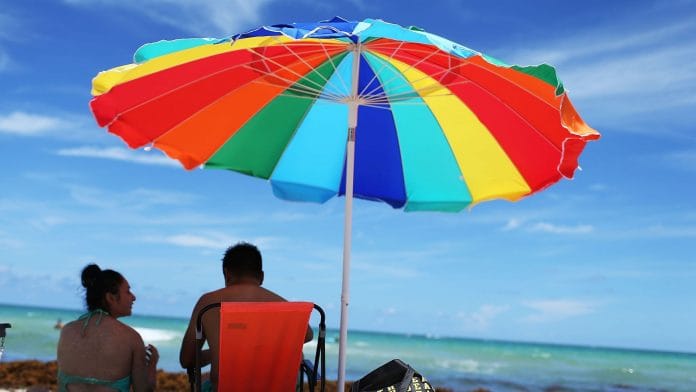The world’s biggest package-holiday company has given a glimpse of what vacations will look like as long as the novel coronavirus remains a potent health threat. Say goodbye to the all-you-can eat buffet and get ready for a renaissance in road trips as getting away means staying very close to home for the foreseeable future.
That’s bad news for Tui AG, which gets the majority of its business from international holidaymakers. On Wednesday, the German company said it will cut up to 8,000 jobs, about 15% of its workforce, to slash costs and cope with the new, grim reality in the global travel industry. Lockdowns paralyzing countries around the world meant it burned through 1 billion euros ($1.1 billion) of cash from March 27 to May 10, as it had to shut hotels, cancel trips and refund customers.
Even as restrictions are eased, the near future doesn’t look much brighter. Discussions on reopening international borders are only just beginning, leaving the potential for lengthy quarantines — not a great way to spend one’s vacation. And there’s no certainty holidaymakers worried about catching the virus will want to travel abroad anyway. So this summer looks pretty much like a washout. Tui has only sold around 35% of its summer 2020 offerings, compared to the some 60% it would usually have booked up by now in a normal year.
Also read: Short trip, virus screening hotel, social distance on beach – this is the future of holidays
Taking Fright
In order to adjust, Tui Chief Executive Officer Fritz Joussen said the company is reinventing its holiday offerings to focus on more local travel, which it expects to recover more quickly. When Europeans start to travel again, they are likely to stay in their home countries, or possibly venture only a bit further afield to visit neighboring nations. That has certainly been the case in China, where Tui has already restarted its business for domestic trips.
With that in mind, of all Tui’s hotels around the world, the company is first preparing to reopen ones on Germany’s North and Baltic Sea coasts, popular destinations for its domestic clientele. There will need to be strict hygiene measures. Wherever possible in Tui hotels, food and drink will be served to guests by staff wearing masks. The company will also promote more hotel packages without flights included to tap demand from customers who want to drive in their own cars. The risk is that this encourages more customers to book directly with hotels themselves, and avoid travel agents altogether.
Cruises too could be more local, and focused on smaller ships, where the number of passengers on board is limited and social distancing easier to put in place. For example, Tui could offer short trips from German harbors to the North and Baltic Seas, while expanding its already popular cruises around the British Isles.
All these measures, however imaginative, may be too late to save this summer, but Tui says demand is picking up for holidays from the autumn onward. It’s hopeful that Greece and Majorca will open up later this season, allowing it to recoup some business lost during the traditional summer months, and possibly set a precedent for an extended summer season for years to come.
Tui, which has been granted a 1.8 billion-euro bridging loan from the German state bank KfW, certainly needs holiday bookings to start looking up soon. Its cash burn is concerning even though it still had available resources of 2.1 billion euros as of May 10. The cash outflow is expected to be between 250 million euros and 300 million euros a month for the remainder of the financial year. Although Tui also warned that it faced a potential cash outflow of an additional several hundred million euros per month from refunding customers.
That’s no holiday. Even if Tui adapts to the short-term constraints, the changing nature of travel means pressure for the foreseeable future.
Also read: Museums are losing millions but working hard to preserve Covid artefacts






